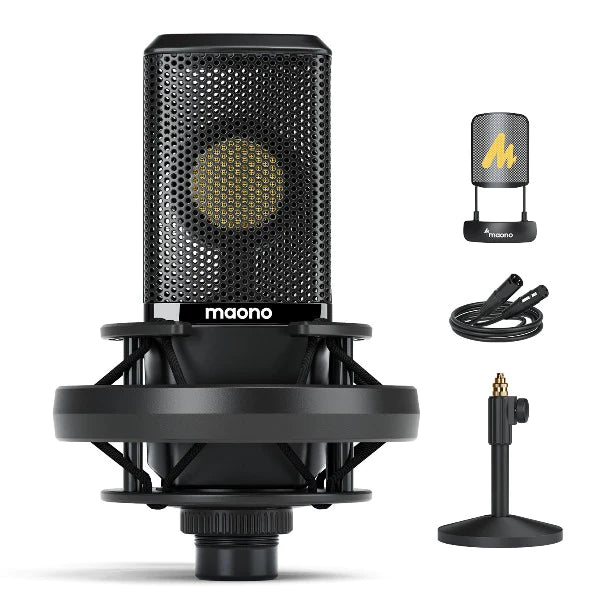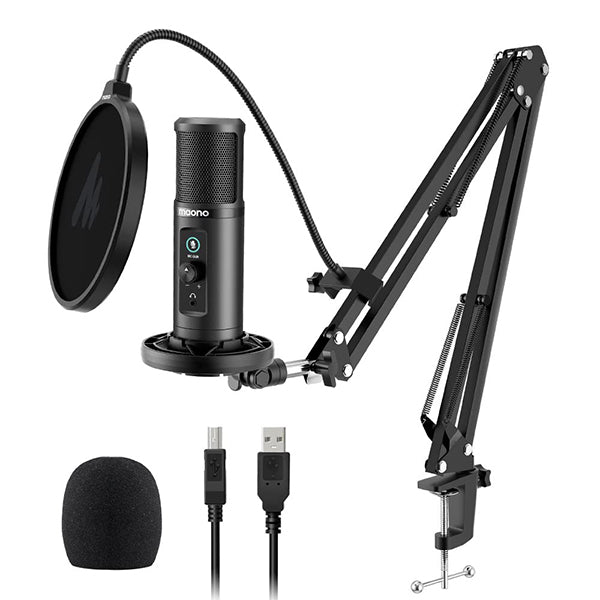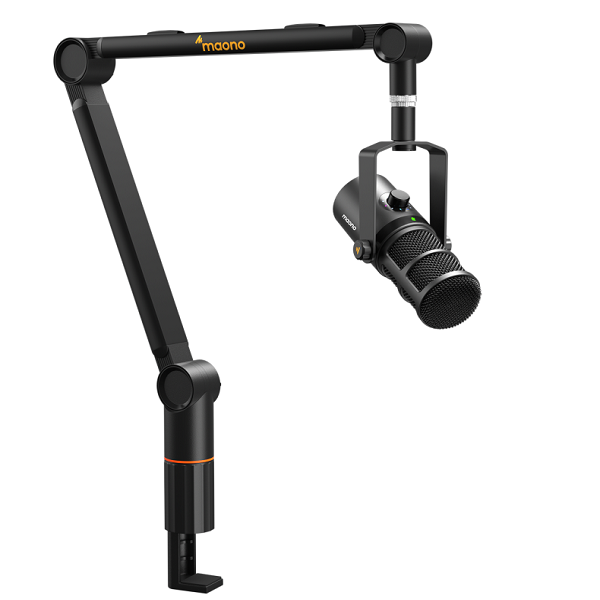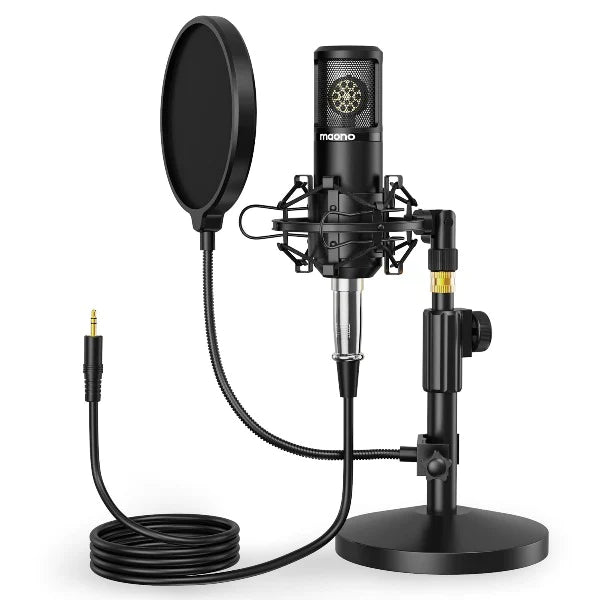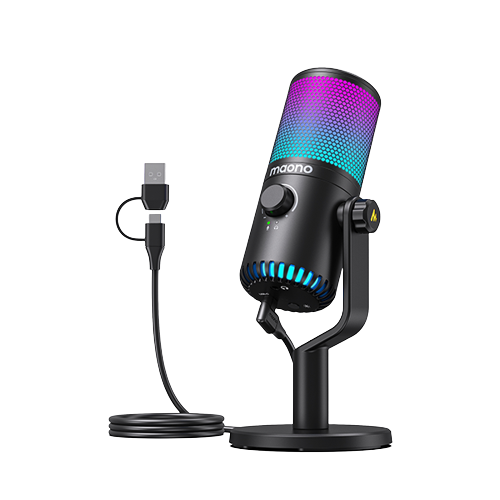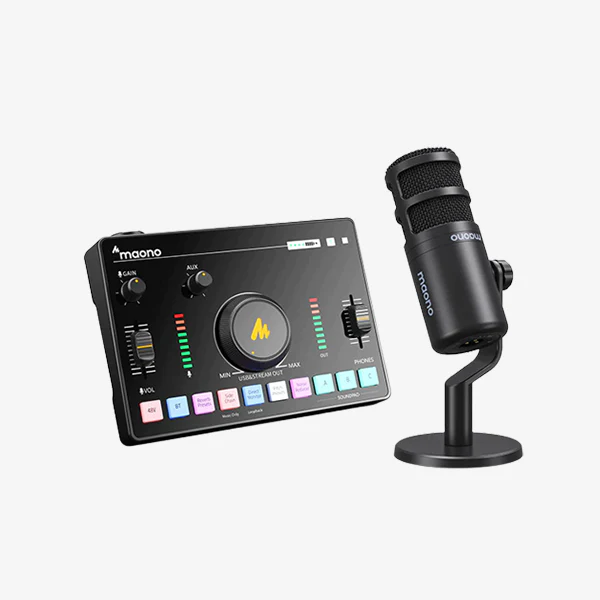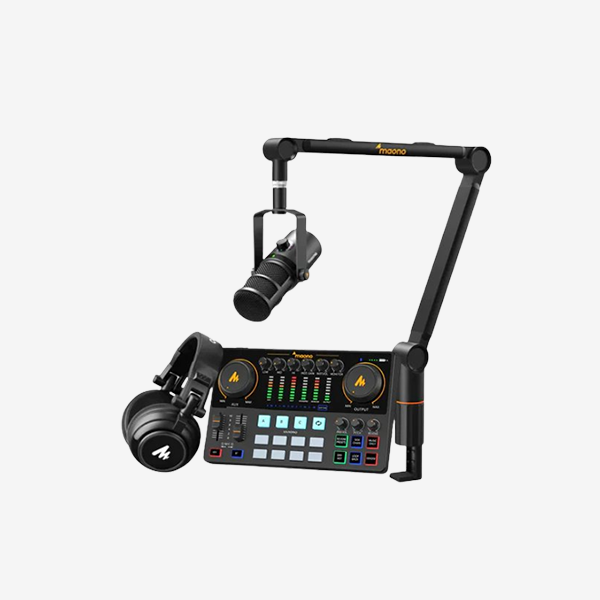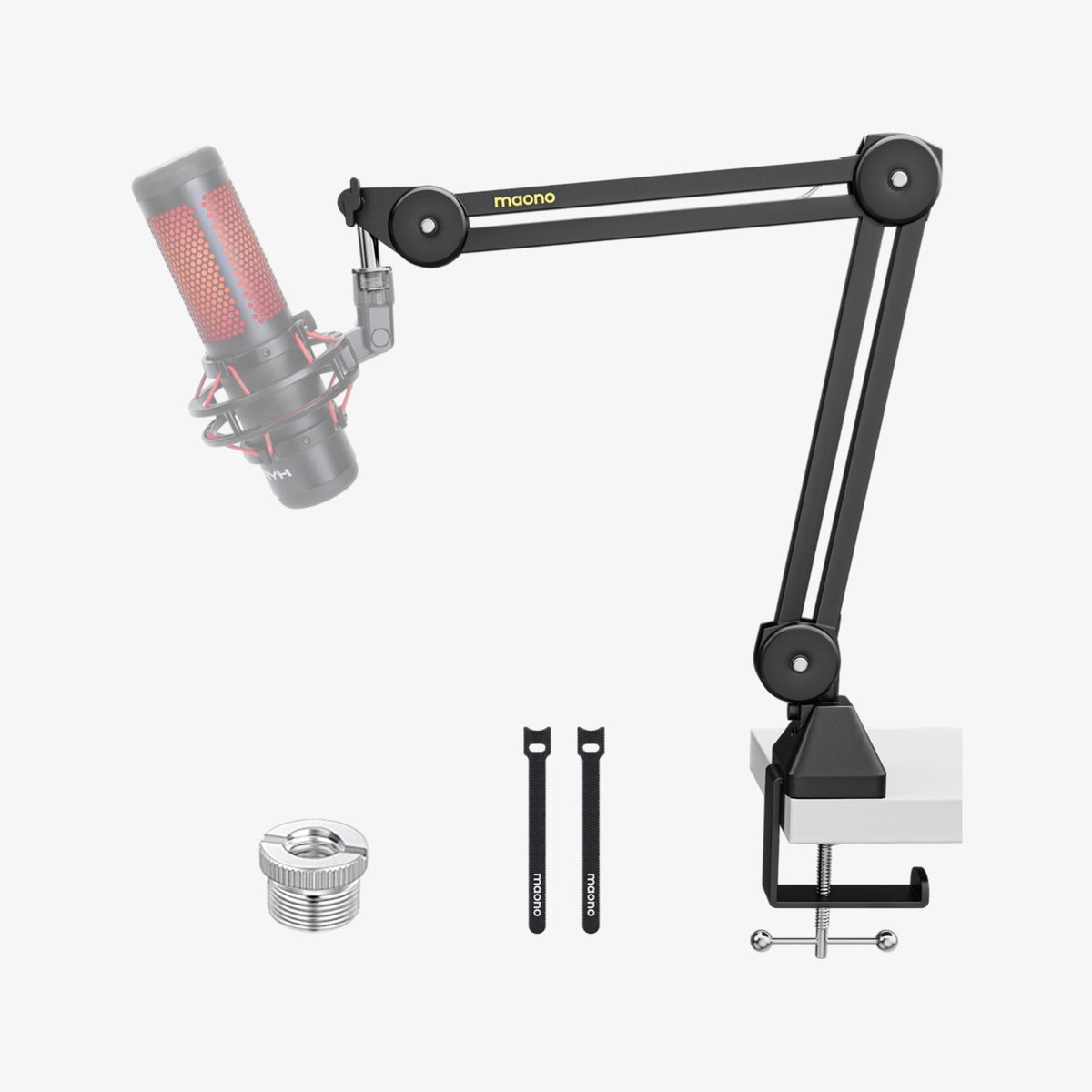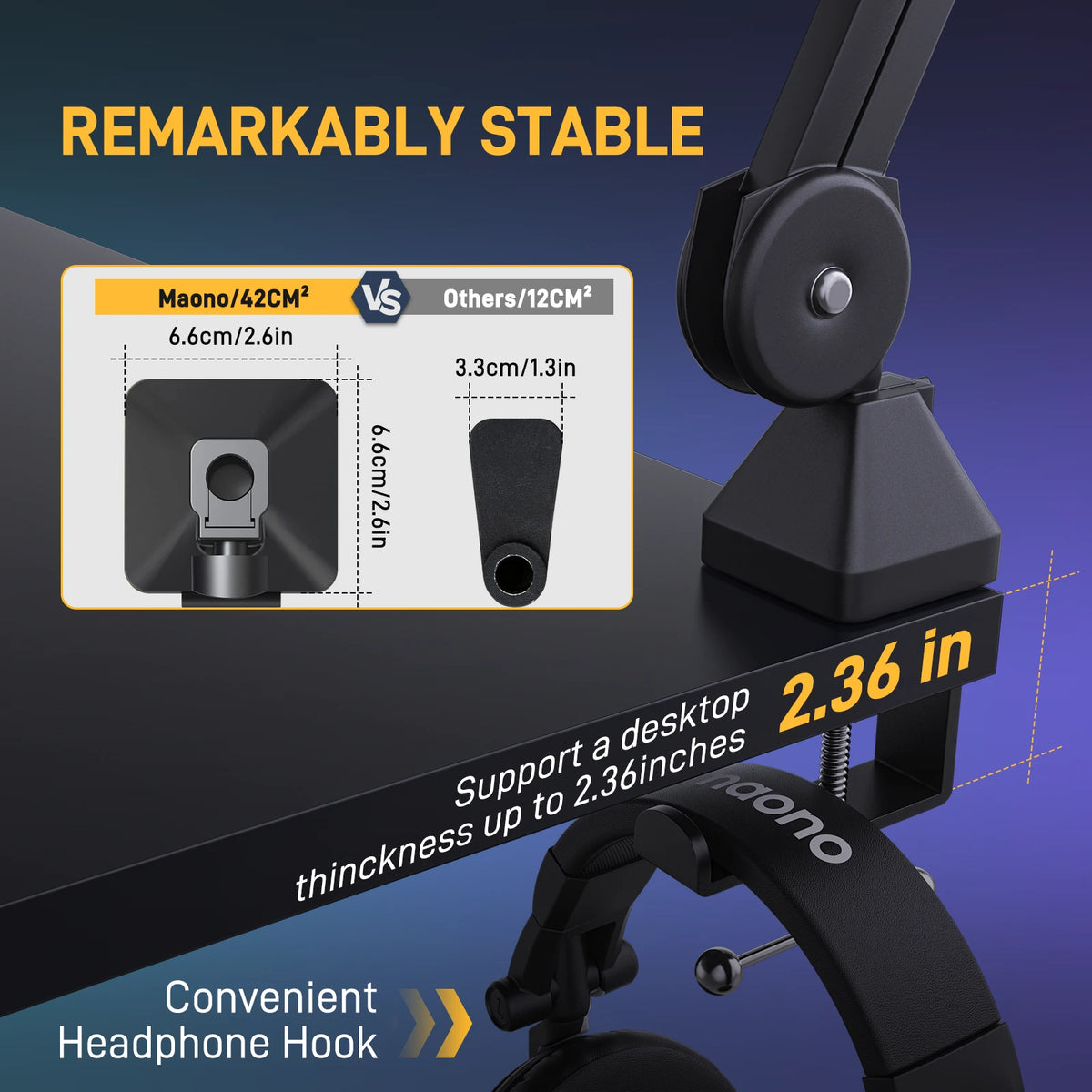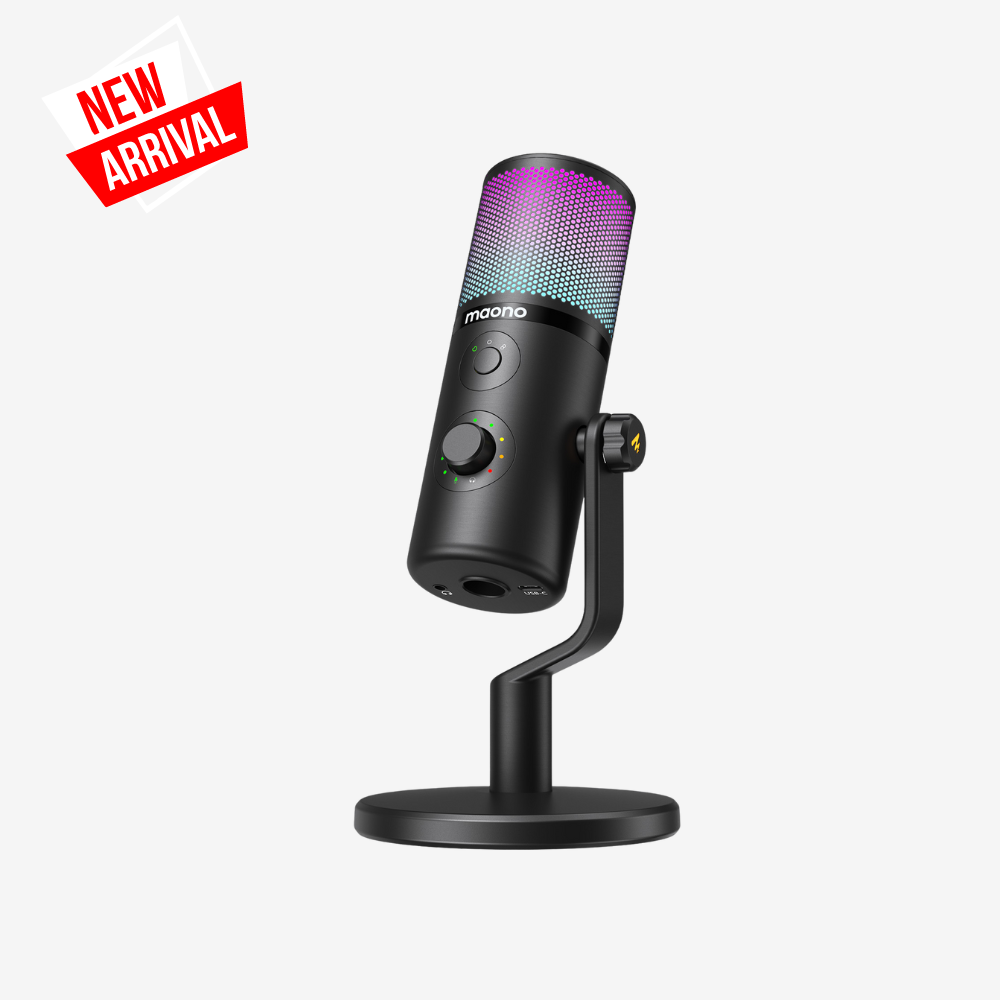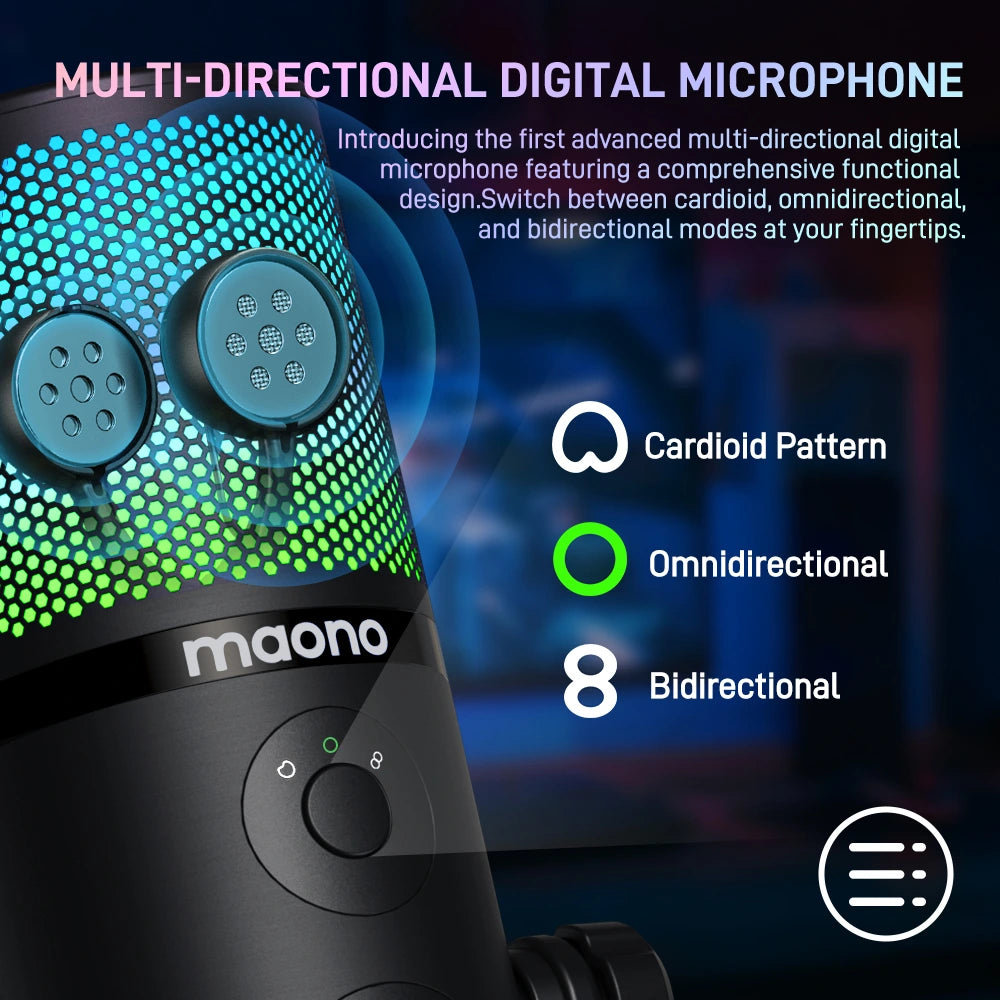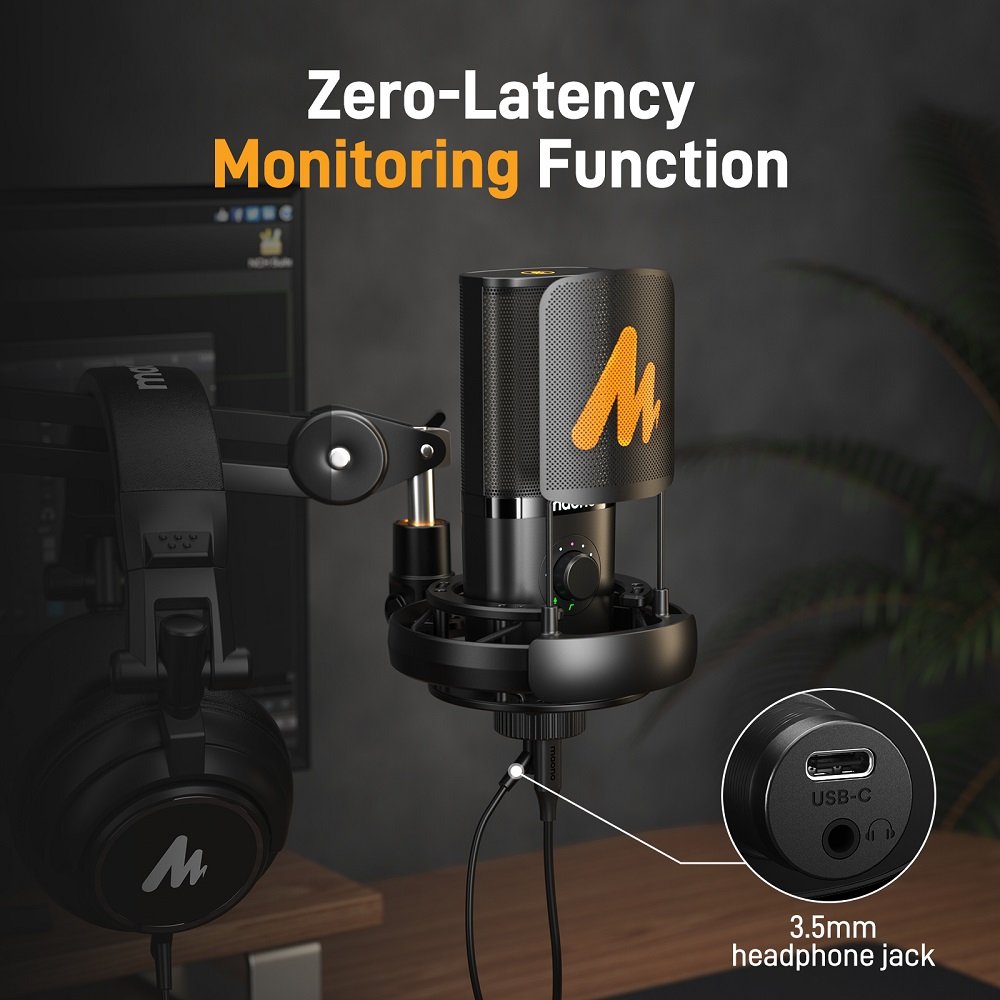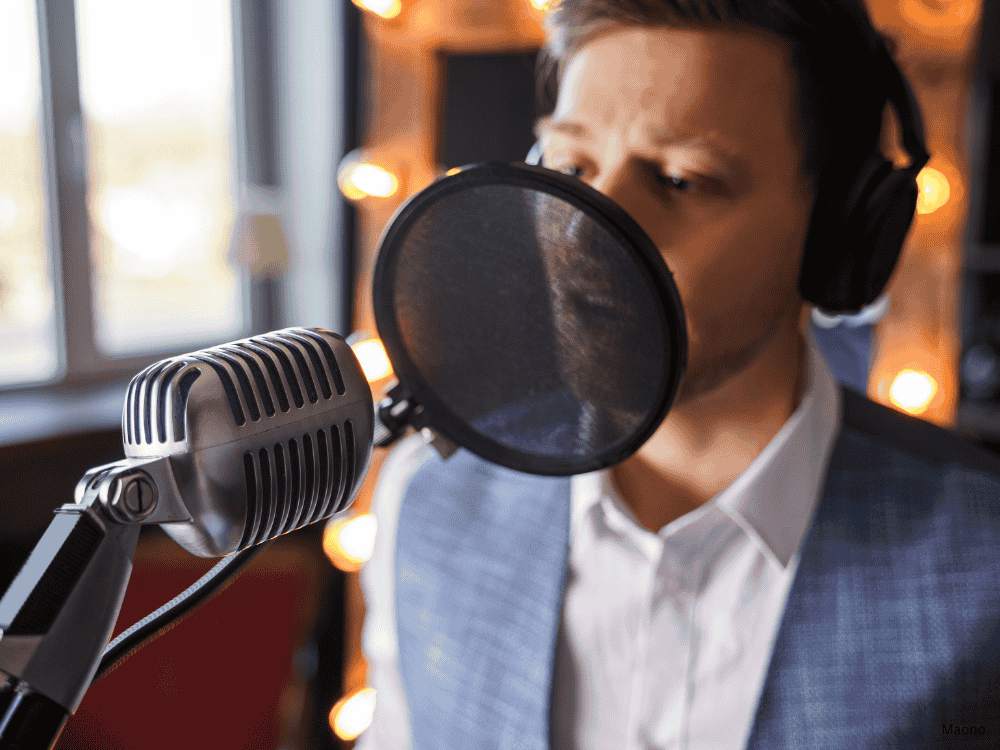Whether you're a professional singer or a seasonal song artist, if you prefer to set up a home recording studio, you will need a good USB condenser mic that is both comfortable to use and affordable. Before we discuss what's a decent condenser microphone, let's differentiate a dynamic from a condenser microphone.
A dynamic microphone is ideal for general-purpose recording and live performances, as it is less sensitive to background noise and doesn't require an external power source. In contrast, a condenser microphone is more sensitive and accurate, making it suitable for professional studio or treated home studio recordings, where capturing every sound detail and a wide range of frequencies is essential.
If you need clarity about understanding the jargon in the world of audio, you may also want to read this article: Basic Audio Terms You Should Learn Before Buying a Microphone.
In this guide, we will explore what's considered a decent USB condenser microphone, the important specs you need to know about a condenser mic, some tips for choosing a mic for vocals recording, and recommend the best mic for vocals.
What is Considered a Decent USB Condenser Microphone?
A decent USB condenser microphone should have at least the following accessories:
- Shock mount
Not all mics have a shock mount or a pop filter. A shock mount is an isolation device that connects two parts of the microphone in a flexible way. The importance of a shock mount is to reduce shocks and vibrations while it helps keep the mic securely attached to the base or frame, and still allowing it to move freely.
- Pop filter
Pop filter is the thin screen placed infront of the microphone to prevent plosives caused by sudden bursts of air. Since we want a microphone to last long, pop filter was created not only for plosives, but also, it it keep saliva/spit off the microphone's diaphragm.
- USB & XLR cable
The availability of both XLR and USB connections is a good thing so you can plug and play your mi without the hassle. If you decide to plug it through USB, then it goes straight to computers for ease of use.
What are the Important Specs of a USB microphone?
Sensitivity
Microphone Sensitivity is how loud the mic is. It is how loud a sound the microphone can pick up without needing extra amplification. For example, if you have two different microphones and play the same sound at the same volume to both, the one with higher sensitivity will record the sound louder.
Max SPL or Maximum Sound Pressure Level
Max SPL is what kind of loud sounds can the microphone handle. It is the loudest sound a microphone can handle without distorting or getting damaged. It's the point where the microphone can still record sound accurately without it sounding bad.
Self-noise
Self-noise is how loud the noise is in the mic or the noise made by the mic itself. The lesser the noise it creates, the better quality.
Accessories
If a bunch of accessories are available for less the price when you purchase a microphone, then you're in luck and that's good.

5 Tips for Choosing a Mic for Vocals Recording
1. Check Your Budget
High-quality microphones come in a wide price range. Determine your budget first to narrow down your options. Remember that while expensive mics often provide better quality, there are affordable options that offer great performance as well. Maono microphones are designed with users in mind, crafted aesthetically, and built to be sturdy and durable, all at a reasonable and affordable price.
2. If it matches Your Voice nd You're Happy With it, It's the Right One
Various elements of a voice can be emphasized by different microphones. Different microphones can make your voice sound different. Some are good for deep voices with lots of bass, while others are better for high-pitched or gentle voices. Try out a few to see which one makes your voice sound the best.
3. Check the Microphone Type and Determine Where you will Use it
Although there are many different kinds of microphones, condenser and dynamic microphones are usually the options when it comes to singing. Since they can capture greater detail and subtlety, condenser microphones are ideal for use in studio environments. Dynamic microphones are appropriate for live performances and certain studio applications because they are more durable and able to withstand higher sound pressure levels.
4. Look at the Mic's Polar Pattern
The direction that the microphone may pick up sound is indicated by polar patterns. It describes the microphone's sensitivity to sound originating from several directions (such as cardioid, omnidirectional, and bidirectional). Cardioid microphones are perfect for recording solo vocals since they capture sound from the front and reject sound coming from the sides and rear. Omnidirectional microphones are good for recording background noise or group vocals since they gather up sound equally from all directions.
5. Test the Microphone in Your Recording Space
The place where you record affects how good your recording sounds. Try your microphone in the room where you'll be recording to make sure it sounds its best. Some microphones might work better in your room than others.
By considering these tips, you can choose a microphone that's suitable to your needs and helps you achieve high-quality vocal recordings.
Top 5 Best Mic for Vocals

PM500
A professional-grade XLR condenser microphone equipped with a large 34mm diaphragm, designed for professional-grade audio recording. It features a cardioid polar pattern to capture sound from the front while minimizing background noise, making it ideal for studio vocals, voice-over work, and podcasts. With its XLR connection, sturdy construction, and versatile applications, this microphone offers high-quality performance for various recording needs.
PM422
PM422 is a USB condenser microphone that's tailored for convenient and high-quality recording, perfect for musicians, streamers, and content creators for its detailed and rich sound. Its plug-and-play design allows for easy setup with both Windows and Mac computers, eliminating the need for additional drivers. Featuring a cardioid pickup pattern and a 16mm electret condenser capsule, it delivers clear and crisp audio reproduction, making it suitable for podcasting, streaming, voice-over, and gaming.
A04
A04 USB condenser microphone kit offers a comprehensive solution for professional-grade audio recording. It includes a condenser microphone with a cardioid pickup pattern, ensuring clear sound capture while minimizing background noise, perfect for singing, voice-over, and podcasting. With its plug-and-play USB connectivity and versatile compatibility, this kit is suitable for various applications such as podcasting, voice-over, gaming, and streaming.
PM320
PM320S XLR condenser microphone kit is designed for high-quality audio recording, perfect for music creation, vocal recording, and sound productions. It features a cardioid polar pattern and a 16mm large diaphragm to capture clear and precise sound while reducing background noise. With its all-inclusive package including a shock mount, pop filter, XLR cable, and windscreen, this kit offers everything needed for professional-grade recording in studio environments.
PM325T
PM325 desktop stand bundle offers a convenient solution for hands-free microphone placement. It includes a sturdy metal stand with a 3.5mm jack, compatible with a variety of microphones and devices. With its adjustable design and stable base, this bundle provides flexibility and reliability for recording vocals and instruments, gaming, streaming, voice-over work, and more.
Conclusion
The best microphone for vocals is a good USB condenser microphone with essential accessories like shock mounts and pop filters which are crucial, ensuring both comfort and affordability. For those seeking to set up a home recording studio, understanding the differences between dynamic and condenser microphones is essential, with condenser mics offering greater sensitivity and accuracy, making them suitable for professional studio recordings where capturing intricate sound details is imperative.











